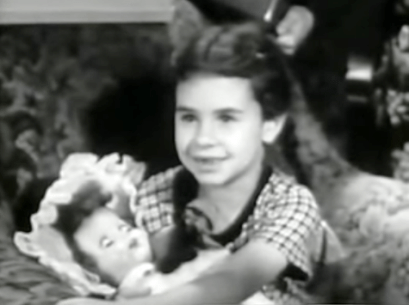At first glance, Guillaume always looks like gobbledygook to me. It’s the French form of William — that much I know — but it takes a few seconds for me to remember that it’s pronounced ghee-ohm, not not gwill-awm or gwee-awm.
And it’s not just Guillaume that trips me up. I find many other French names (Étienne, Edwige, Anaïs, etc.) equally tricky to pronounce.
So for those of us who struggle with French names, here are some simplified rules of French pronunciation, plus names to illustrate each rule.
This list is far from comprehensive, and my pronunciations are just approximations, but hopefully my fellow non-French speakers out there will find it helpful nonetheless.
French Pronunciation + French Names
AU: The vowel combination “AU” is pronounced like a long o.
- Paul, in French, is pronounced pohl.
- Margaux, a French form of Margaret, is pronounced mar-goh.
CH: The letter combination “CH” is typically pronounced sh.
- Charles, in French, is pronounced shahrl.
D, P, S, T, X, Z: The six consonants “D,” “P,” “S,” “T,” “X” and “Z,” when at the end of a word, are typically silent.
- Arnaud, the French form of Arnold, is pronounced ar-noh.
- Denis, the French form of Dennis, is pronounced de-nee (remember that Blondie song?).
- Lucas, in French, is pronounced loo-kah.
- Louis, in French, is pronounced loo-ee (think Louis Vuitton).
…They’re not always silent, though. Here are some exceptions:
- Alois, the French form of Aloysius, is pronounced ah-loh-ees.
- Anaïs, a French form of Anna, is pronounced ah-nah-ees.
- David, in French, is pronounced dah-veed.
Ë: The pronunciation of “Ë” (E with a trema) is like the e in the English word “bet.”
- Gaël and Gaëlle are pronounced gah-el or gai-el.
- Joël and Joëlle are pronounced zhoh-el.
- Maël and Maëlle are pronounced mah-el or mai-el.
- Noël and Noëlle are pronounced noh-el.
É: The pronunciation of “É” (E with an acute accent) is somewhere between the ee in “see” and the e in “bet.”
- Noé, the French masculine form of Noah, is pronounced noh-ee.
- Salomé, in French, is pronounced sah-loh-mee.
G: The consonant “G” is soft (zh) when followed by “E” or “I” but hard (gh) otherwise.
- Georges, the French form of George, is pronounced zhorzh.
- Guy, in French, is pronounced ghee.
H: The consonant “H” is silent.
- Hélène, the French form of Helen, is pronounced eh-lehn.
I: The vowel “I,” and the forms Ï, and Î, are all pronounced ee.
- Loïc, a French form of Louis, is pronounced loh-eek.
J: The consonant “J” is pronounced zh.
- Jacques, the French form of Jacob, is pronounced zhahk.
LL: The letter combination “LL” is typically pronounced like an l.
- Achille, the French form of Achilles, is pronounced ah-sheel.
- Lucille, the French form of Lucilla, is pronounced loo-seel.
…But in some cases “LL” is pronounced like a y.
- Guillaume, the French form of William, is pronounced ghee-yohm or ghee-ohm.
OI: The vowel combination “OI” is pronounced wah.
- Antoine, the French form of Antony, is pronounced an-twahn.
- Grégoire, the French form of Gregory, is pronounced gre-gwahr.
OU: The vowel combination “OU” is pronounced oo.
- Lilou is pronounced lee-loo.
R: The consonant “R,” when at the end of a word, is typically pronounced.
- Clair, the French masculine form of Claire, is pronounced kler.
- Edgar, in French, is pronounced ed-gahr.
…When the “R” is preceded by an “E,” though, it is not pronounced.
- Gauthier, the French form of Walter, is pronounced goh-tee-yay or goh-tyay (remember Gotye?).
- Olivier, the French form of Oliver, is pronounced oh-lee-vee-yay or oh-lee-vyay (think Laurence Olivier).
TH: The letter combination “TH” is typically pronounced like a t (which makes sense, since “H” is silent).
- Thibault, the French form of Theobald, is pronounced tee-boh.
TI: The letter combination “TI” is sometimes pronounced like an s or sy.
- Laëtitia is pronounced lay-tee-sya.
W: The consonant “W” is pronounced like a v.
- Edwige, the French form of Hedwig, is pronounced ed-veezh.
And finally, just a few more French names that I tend to have trouble with.
- Anatole is pronounced ah-nah-tohl.
- Étienne, the French form of Stephen, is pronounced eh-tyen.
- Geoffroy, the French form of Geoffrey, is pronounced zho-fwah.
- Ghislain and Ghislaine are pronounced either ghee-len or zheez-len.
- Ignace, the French form of Ignatius, is pronounced ee-nyas.
*
Those aren’t too hard, right?
That’s what I tell myself…and then I come across Guillaume in the wild and my mind goes blank all over again. :)
If you know French and would like to add to the above (either another rule of pronunciation or a more precise pronunciation for a particular name) please leave a comment.
If you’re not a French speaker, here’s my question: Which French name gives you the most trouble?
P.S. Interested in seeing how popular the French names above are in the U.S.? Here are some popularity graphs: Alois, Achille, Anaïs, Anatole, Antoine, Arnaud, Clair, Denis, Edwige, Étienne, Gaël/Gaëlle, Georges, Grégoire, Guillaume, Guy, Hélène, Ignace, Jacques, Laëtitia, Lilou, Loïc, Lucille, Maël/Maëlle, Margaux, Noé, Olivier, Salomé, Thibault.
Sources: Beginning French Pronunciation, French e, è, é, ê, ë – what’s the difference?, Google Translate
Image: Adapted from Abbaye Notre-Dame de Sénanque, 2022 by Chris Down under CC BY 4.0.
[Latest update: July 2023]



